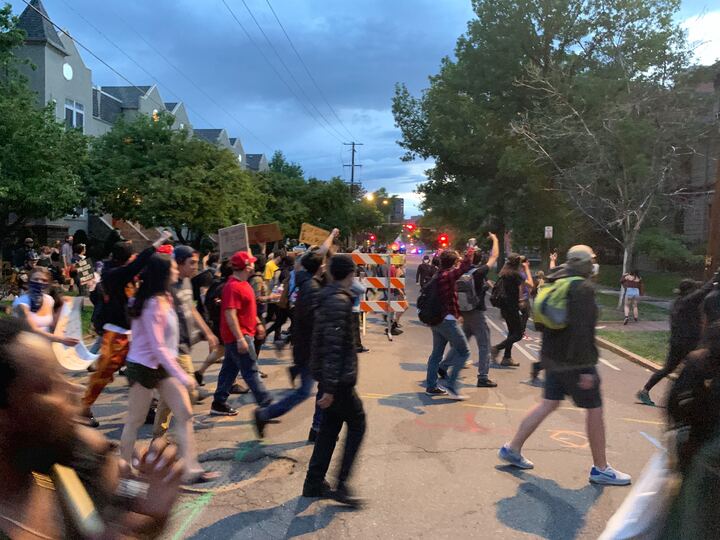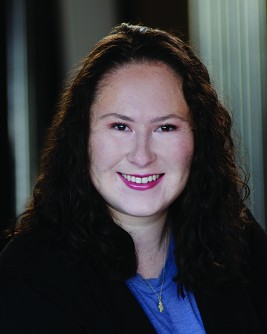
Updated 2:57 p.m.
Denver Mayor Michael Hancock said Monday that the weekend curfew aimed at dispersing protests against police brutality will be extended throughout the week.
On Twitter, the mayor said the curfew would begin at 9 p.m. Monday and run through Friday morning. Over the weekend, the curfew had started at 8 p.m.
"I don't think we had an option but to extend the curfew," Hancock told Colorado Matters. "We're working on what those parameters of that curfew will be."
Hancock called the curfew an important tool for law enforcement.
Demonstrators are expected to gather Monday night at 5 p.m. for the fifth day of protests. They began after the May 25 death of George Floyd in Minneapolis Police custody.
Sunday's protests began midday. Hundreds of people were still protesting until several hours after the 8 p.m. curfew started.
Hancock said 170 people were arrested after curfew Sunday night. He said seven were arrested with weapons of some kind.
Most people left in time for curfew, Hancock said. But he added that some, "are hell-bent on being provocative and promoting destruction and violence and engagement with law enforcement. They weren't going to listen and it exposed them just as we thought it would. Nothing they did after curfew had anything to do with George Floyd or the message of the peaceful demonstrators."
Denver Police said the department will release arrest and injury totals for the first four days of protests Monday or early this week.
Most demonstrators peacefully marched chanting things like “peaceful protest” and “This is what democracy looks like.” Others sprayed messages on nearby buildings. Someone threw a brick at police, according to Hancock.
"I'm not painting a broad brush against the demonstrators," he said. "I believe the vast majority of the demonstrators are good people who have demonstrated for the right reason. When the demonstration was over, they went home. Unfortunately, they have also unwittingly served as a veil for people who are hell-bent on bringing destruction and trying to provoke violence and response from law enforcement."
Police tear-gassed protesters and fired other crowd-dispersing ammunition.
Hancock said that police only did so in response to some kind of attack.
"They are not proactively firing tear gas into the crowd without something happening to them first," he said. "It is a reaction."
Some protesters, like April Alexander, said police used tear gas and pepper bullets on peaceful crowds. That information has not been officially confirmed.
Hancock also said he has received some intelligence that outside agitators or extremist groups played a part in sparking protest violence. He did not specify where, when, or who was responsible, nor where that intelligence came from.
"There is a very dangerous element embedded in these demonstrations," Hancock said.









